Abstract:
Recent years have witnessed a steady growth in the achievable quantum systems due to advancements in qubit technology across several hardware platforms. Currently enterin...Show MoreMetadata
Abstract:
Recent years have witnessed a steady growth in the achievable quantum systems due to advancements in qubit technology across several hardware platforms. Currently entering an era of noisy intermediate-scale quantum (NISQ) systems brings additional design challenges. In these systems, each individual qubit is accompanied by a substantial amount of classical CMOS circuitry for qubit instantiation, control and readout, which is to be integrated at the cryo temperature. This work presents a methodology for the co-design and co-simulation of silicon spin qubits in quantum dots, together with their associated cryo-CMOS circuitry, relying on an established spin qubit compact model. In addition, a detailed procedure is proposed for the integration of the model into a classical design flow, which is crucial for the usability of the model in practice. This is illustrated by simulating the readout of a qubit using a complete CMOS readout chip that behaves in a realistic, nonideal way. Bringing the design to a single simulation environment allows for the capture and analysis of effects that otherwise are not possible to simulate when considering the qubits and the cryo-CMOS circuitry separately. This opens up opportunities for more robust design in the future.
Published in: IEEE Journal on Emerging and Selected Topics in Circuits and Systems ( Volume: 12, Issue: 3, September 2022)
Funding Agency:
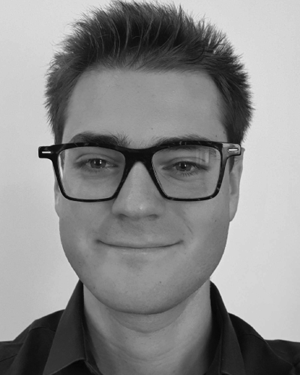
imec, Leuven, Belgium
Department of Electrical Engineering (ESAT), KU Leuven, Leuven, Belgium
Benjamin Gys received the B.Sc. degree in electrical engineering and computer sciences and the M.Sc. degree in nanoscience, nanotechnology and nanoengineering from Katholieke Universiteit Leuven, Belgium, in 2018 and 2020, respectively. He is currently pursuing the Ph.D. degree in device architectures and systems for silicon spin quantum computing with the Department of Electrical Engineering, KU Leuven, and imec, Leuven....Show More
Benjamin Gys received the B.Sc. degree in electrical engineering and computer sciences and the M.Sc. degree in nanoscience, nanotechnology and nanoengineering from Katholieke Universiteit Leuven, Belgium, in 2018 and 2020, respectively. He is currently pursuing the Ph.D. degree in device architectures and systems for silicon spin quantum computing with the Department of Electrical Engineering, KU Leuven, and imec, Leuven....View more
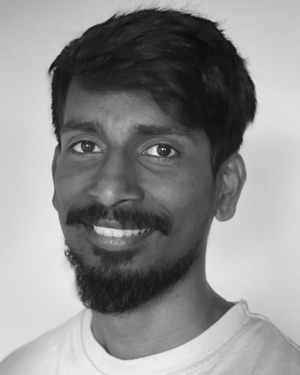
imec, Leuven, Belgium
Department of Electrical Engineering (ESAT), KU Leuven, Leuven, Belgium
Rohith Acharya received the bachelor’s degree in electronics and communication engineering from RVCE, Bangalore, in 2013, and the Erasmus Mundus Master degree in nanoscience and nanotechnology jointly from KU Leuven and TU Dresden, in 2018. He is currently pursuing the Ph.D. degree in superconducting qubit design and characterization with the Electrical Engineering Department, KU Leuven, and imec, Leuven. From 2013 to 201...Show More
Rohith Acharya received the bachelor’s degree in electronics and communication engineering from RVCE, Bangalore, in 2013, and the Erasmus Mundus Master degree in nanoscience and nanotechnology jointly from KU Leuven and TU Dresden, in 2018. He is currently pursuing the Ph.D. degree in superconducting qubit design and characterization with the Electrical Engineering Department, KU Leuven, and imec, Leuven. From 2013 to 201...View more
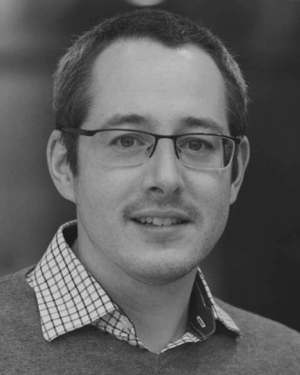
imec, Leuven, Belgium
Steven Van Winckel (Member, IEEE) received the master’s degree in electrical engineering from Katholieke Universiteit Leuven, Belgium, in 2006. From 2006 to 2008, he joined imec, Leuven, where he was worked in the field of organic semiconductor-based circuit design. From 2008 to 2019, he worked with AnSem Leuven (later acquired by Cyient), on analog, mixed-signal, and RF circuit design. Since 2019, he has been with imec, ...Show More
Steven Van Winckel (Member, IEEE) received the master’s degree in electrical engineering from Katholieke Universiteit Leuven, Belgium, in 2006. From 2006 to 2008, he joined imec, Leuven, where he was worked in the field of organic semiconductor-based circuit design. From 2008 to 2019, he worked with AnSem Leuven (later acquired by Cyient), on analog, mixed-signal, and RF circuit design. Since 2019, he has been with imec, ...View more
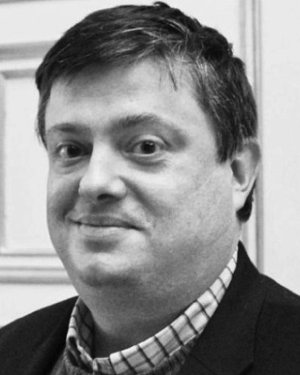
imec, Leuven, Belgium
Kristiaan De Greve received the Burg.Ir. degree (summa cum laude) in engineering (Elektrotechniek, valedictorian) from KU Leuven—ESAT, with research performed at imec and Caltech, and the Ph.D. degree in electrical engineering from Stanford University in 2012. He holds additional degrees in economics and physics from Stanford and the mini-M.B.A. degree from the Harvard Business School. He was a Stanford Graduate Fellow wi...Show More
Kristiaan De Greve received the Burg.Ir. degree (summa cum laude) in engineering (Elektrotechniek, valedictorian) from KU Leuven—ESAT, with research performed at imec and Caltech, and the Ph.D. degree in electrical engineering from Stanford University in 2012. He holds additional degrees in economics and physics from Stanford and the mini-M.B.A. degree from the Harvard Business School. He was a Stanford Graduate Fellow wi...View more
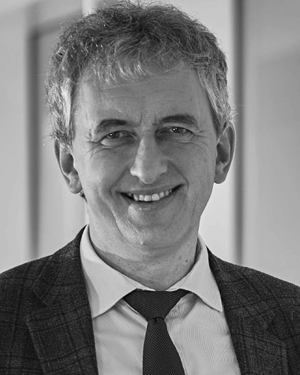
imec, Leuven, Belgium
Department of Electrical Engineering (ESAT), KU Leuven, Leuven, Belgium
Georges Gielen (Fellow, IEEE) received the M.Sc. and Ph.D. degrees in electrical engineering from Katholieke Universiteit (KU) Leuven, Leuven, Belgium, in 1986 and 1990, respectively. He is currently a Full Professor with the Department of Electrical Engineering (ESAT), KU Leuven. He is also a frequently invited speaker/lecturer and a coordinator/partner of several (industrial) research projects in this area, including se...Show More
Georges Gielen (Fellow, IEEE) received the M.Sc. and Ph.D. degrees in electrical engineering from Katholieke Universiteit (KU) Leuven, Leuven, Belgium, in 1986 and 1990, respectively. He is currently a Full Professor with the Department of Electrical Engineering (ESAT), KU Leuven. He is also a frequently invited speaker/lecturer and a coordinator/partner of several (industrial) research projects in this area, including se...View more
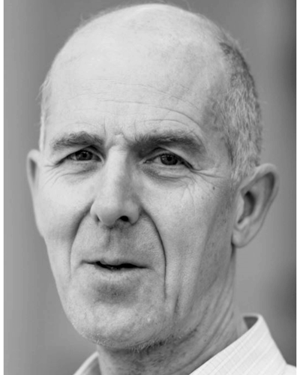
imec, Leuven, Belgium
Department of Electrical Engineering (ESAT), KU Leuven, Leuven, Belgium
Francky Catthoor received the Ph.D. degree in electrical engineering (EE) from Katholieke Universiteit Leuven, Belgium, in 1987. From 1987 to 2000, he was headed several research domains in the area of synthesis techniques and architectural methodologies. Since 2000, he has been strongly involved in other activities at imec, including co-exploration of application, computer architecture and deep submicron technology aspec...Show More
Francky Catthoor received the Ph.D. degree in electrical engineering (EE) from Katholieke Universiteit Leuven, Belgium, in 1987. From 1987 to 2000, he was headed several research domains in the area of synthesis techniques and architectural methodologies. Since 2000, he has been strongly involved in other activities at imec, including co-exploration of application, computer architecture and deep submicron technology aspec...View more

imec, Leuven, Belgium
Department of Electrical Engineering (ESAT), KU Leuven, Leuven, Belgium
Benjamin Gys received the B.Sc. degree in electrical engineering and computer sciences and the M.Sc. degree in nanoscience, nanotechnology and nanoengineering from Katholieke Universiteit Leuven, Belgium, in 2018 and 2020, respectively. He is currently pursuing the Ph.D. degree in device architectures and systems for silicon spin quantum computing with the Department of Electrical Engineering, KU Leuven, and imec, Leuven. His research interests include qubit device modelling, cryo-CMOS design, and quantum computer microarchitecture design.
Benjamin Gys received the B.Sc. degree in electrical engineering and computer sciences and the M.Sc. degree in nanoscience, nanotechnology and nanoengineering from Katholieke Universiteit Leuven, Belgium, in 2018 and 2020, respectively. He is currently pursuing the Ph.D. degree in device architectures and systems for silicon spin quantum computing with the Department of Electrical Engineering, KU Leuven, and imec, Leuven. His research interests include qubit device modelling, cryo-CMOS design, and quantum computer microarchitecture design.View more

imec, Leuven, Belgium
Department of Electrical Engineering (ESAT), KU Leuven, Leuven, Belgium
Rohith Acharya received the bachelor’s degree in electronics and communication engineering from RVCE, Bangalore, in 2013, and the Erasmus Mundus Master degree in nanoscience and nanotechnology jointly from KU Leuven and TU Dresden, in 2018. He is currently pursuing the Ph.D. degree in superconducting qubit design and characterization with the Electrical Engineering Department, KU Leuven, and imec, Leuven. From 2013 to 2016, he worked as a Design Engineer with Qualcomm, Bangalore. His research interests include qubit modelling, design, and characterization with an emphasis on low-temperature measurements.
Rohith Acharya received the bachelor’s degree in electronics and communication engineering from RVCE, Bangalore, in 2013, and the Erasmus Mundus Master degree in nanoscience and nanotechnology jointly from KU Leuven and TU Dresden, in 2018. He is currently pursuing the Ph.D. degree in superconducting qubit design and characterization with the Electrical Engineering Department, KU Leuven, and imec, Leuven. From 2013 to 2016, he worked as a Design Engineer with Qualcomm, Bangalore. His research interests include qubit modelling, design, and characterization with an emphasis on low-temperature measurements.View more

imec, Leuven, Belgium
Steven Van Winckel (Member, IEEE) received the master’s degree in electrical engineering from Katholieke Universiteit Leuven, Belgium, in 2006. From 2006 to 2008, he joined imec, Leuven, where he was worked in the field of organic semiconductor-based circuit design. From 2008 to 2019, he worked with AnSem Leuven (later acquired by Cyient), on analog, mixed-signal, and RF circuit design. Since 2019, he has been with imec, Leuven, where he is working on cryogenic circuit design and specialty image sensor design.
Steven Van Winckel (Member, IEEE) received the master’s degree in electrical engineering from Katholieke Universiteit Leuven, Belgium, in 2006. From 2006 to 2008, he joined imec, Leuven, where he was worked in the field of organic semiconductor-based circuit design. From 2008 to 2019, he worked with AnSem Leuven (later acquired by Cyient), on analog, mixed-signal, and RF circuit design. Since 2019, he has been with imec, Leuven, where he is working on cryogenic circuit design and specialty image sensor design.View more

imec, Leuven, Belgium
Kristiaan De Greve received the Burg.Ir. degree (summa cum laude) in engineering (Elektrotechniek, valedictorian) from KU Leuven—ESAT, with research performed at imec and Caltech, and the Ph.D. degree in electrical engineering from Stanford University in 2012. He holds additional degrees in economics and physics from Stanford and the mini-M.B.A. degree from the Harvard Business School. He was a Stanford Graduate Fellow with Stanford University. He joined the Physics Department, Harvard University, as a fellow, from 2012 to2019, after he moved to imec. He is currently the Program Director of Quantum Computing with imec, a part-time Professor with KU Leuven (ESAT-MNS), and a Visiting Fellow with Harvard University. He has authored multiple patents and over 30 articles in journals such as Nature, Science, Nature Physics, Nature Photonics, and Nature Nanotechnology, which have been highly cited. He was awarded the Springer Thesis Prize for his Ph.D. research. He was a recipient of numerous awards and prizes.
Kristiaan De Greve received the Burg.Ir. degree (summa cum laude) in engineering (Elektrotechniek, valedictorian) from KU Leuven—ESAT, with research performed at imec and Caltech, and the Ph.D. degree in electrical engineering from Stanford University in 2012. He holds additional degrees in economics and physics from Stanford and the mini-M.B.A. degree from the Harvard Business School. He was a Stanford Graduate Fellow with Stanford University. He joined the Physics Department, Harvard University, as a fellow, from 2012 to2019, after he moved to imec. He is currently the Program Director of Quantum Computing with imec, a part-time Professor with KU Leuven (ESAT-MNS), and a Visiting Fellow with Harvard University. He has authored multiple patents and over 30 articles in journals such as Nature, Science, Nature Physics, Nature Photonics, and Nature Nanotechnology, which have been highly cited. He was awarded the Springer Thesis Prize for his Ph.D. research. He was a recipient of numerous awards and prizes.View more

imec, Leuven, Belgium
Department of Electrical Engineering (ESAT), KU Leuven, Leuven, Belgium
Georges Gielen (Fellow, IEEE) received the M.Sc. and Ph.D. degrees in electrical engineering from Katholieke Universiteit (KU) Leuven, Leuven, Belgium, in 1986 and 1990, respectively. He is currently a Full Professor with the Department of Electrical Engineering (ESAT), KU Leuven. He is also a frequently invited speaker/lecturer and a coordinator/partner of several (industrial) research projects in this area, including several European projects. He has authored or coauthored seven books and over 600 papers in edited books, international journals, and conference proceedings. His research interests include design and design automation of analog, and mixed-signal integrated circuits. He was elected as a member of the Academia Europaea in 2018.
Georges Gielen (Fellow, IEEE) received the M.Sc. and Ph.D. degrees in electrical engineering from Katholieke Universiteit (KU) Leuven, Leuven, Belgium, in 1986 and 1990, respectively. He is currently a Full Professor with the Department of Electrical Engineering (ESAT), KU Leuven. He is also a frequently invited speaker/lecturer and a coordinator/partner of several (industrial) research projects in this area, including several European projects. He has authored or coauthored seven books and over 600 papers in edited books, international journals, and conference proceedings. His research interests include design and design automation of analog, and mixed-signal integrated circuits. He was elected as a member of the Academia Europaea in 2018.View more

imec, Leuven, Belgium
Department of Electrical Engineering (ESAT), KU Leuven, Leuven, Belgium
Francky Catthoor received the Ph.D. degree in electrical engineering (EE) from Katholieke Universiteit Leuven, Belgium, in 1987. From 1987 to 2000, he was headed several research domains in the area of synthesis techniques and architectural methodologies. Since 2000, he has been strongly involved in other activities at imec, including co-exploration of application, computer architecture and deep submicron technology aspects, biomedical systems and the IoT sensor nodes, and photo-voltaic modules combined with renewable energy systems, all at imec, Leuven, Belgium. He is currently an imec Senior Fellow. He is also a part-time Full Professor with the EE department, KU Leuven. He has been an Associate Editor for several IEEE and ACM journals.
Francky Catthoor received the Ph.D. degree in electrical engineering (EE) from Katholieke Universiteit Leuven, Belgium, in 1987. From 1987 to 2000, he was headed several research domains in the area of synthesis techniques and architectural methodologies. Since 2000, he has been strongly involved in other activities at imec, including co-exploration of application, computer architecture and deep submicron technology aspects, biomedical systems and the IoT sensor nodes, and photo-voltaic modules combined with renewable energy systems, all at imec, Leuven, Belgium. He is currently an imec Senior Fellow. He is also a part-time Full Professor with the EE department, KU Leuven. He has been an Associate Editor for several IEEE and ACM journals.View more


